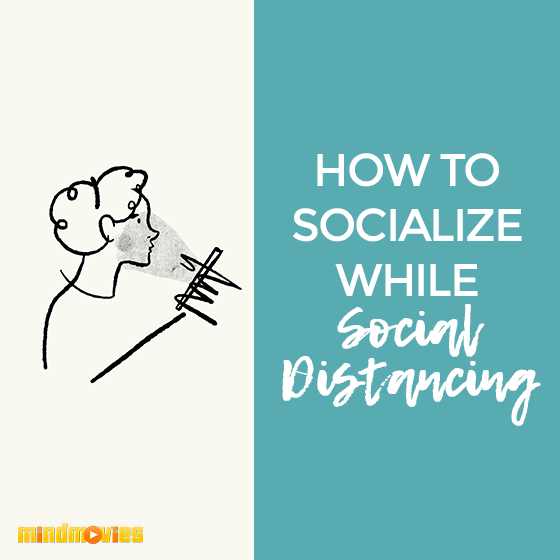On this week’s blog, we share a guest post from blogger Michelle Joe. Enjoy :-)
Good communication skills are the secret to developing and nurturing great friendships and creating lasting relationships! These relationships have the potential to become your support network, providing strong social backing when you need it the most. The trouble is, a lot of people aren’t born with excellent communication skills; they are acquired over a lifetime of learning by trial, as well as repeated practice. Failure to learn these skills can cause hardships and difficulties in life. On the other hand, excelling at these skills can set a person up for lifelong success, giving them the tools to deal with stress and anxiety.

There are many aspects to effective communication. Some people might be great at body language and other non-verbal communication cues, but they might not know how to assert themselves, or they may need to learn how to deal with conflicts in the workplace. On the surface of it all, effective communication sounds like something that should be instinctive. But, it can also be learned. Often, we see communication efforts going wrong. A person may want to say something else, but it is misunderstood and can cause frustration and conflicts. This can lead to stressful situations in school, home and work relationships.
For many of us, communication requires effort. It is an essential skill to build better relationships with your kids, significant other, coworkers, boss, clients, and many others. Communicating the right way builds trusts, improves problem-solving, and contributes to social and emotional well-being.
What is effective communication?
For starters, it is more than just an exchange of information. It is about creating an understanding of not just words but also emotions and intentions behind those words. It is about conveying a clear message, and also involves the person at the receiving end to get the complete meaning of what is being communicated.
Communication isn’t just about talking, but also about hearing the other side, and feeling understood yourself. It is more than just using words. Effective communication consists of nonverbal communication, being assertive, listening carefully, and managing stress while in the moment.
Effective communication helps keep stress in check!
Don’t you feel stressed out and angry every time there’s a disagreement with your boss, friends, kid or even your spouse? In such heated-up situations, we’ve all said things we regret later on.
It is important to quickly relieve the stress and return to peace if you want to avoid such regretful situations. When you learn to be calm and relaxed, your responses are better, and you can understand the nonverbal signals of the other party. This skill also comes in handy during job interviews, high-pressure meetings as well as different situations where it is essential that your emotions take a back seat. Communication skills can help you manage emotions.

A guide to relieving stress with effective communication:
Effective communication skills can help keep things under control during a heated conversation. When the emotional intensity is under check, things get done correctly. Here’s how to ensure that this happens:
- Recognize when you're getting stressed out:
We all have triggers that are precursors to mental issues and emotional instability. Try to recognize these triggers in yourself. How do you feel just before the anger, stress or anxiety hits you? Do you ‘forget’ to breathe? Do you tend to clench your fists? Does your breathing become shallow?
- Calm down:
We know it’s easier said than done. But try and take a moment to breathe. Then decide whether you’d like to continue the conversation calmly or postpone it.
- Let your senses come to your rescue:
Do you feel agitated? Why not divert your attention to a more pleasurable sensation? For example, pop a breath mint, or play with a squeeze ball for a few minutes. If nothing else is available, take deep breaths, relax your muscles and clench them alternatively. Or, simply recall a pleasant, soothing memory. Find out what helps you relax and then keep reminding yourself of it. Remember, everyone responds to different stimuli and sensory input. Once you’ve figured out what makes your nervous system feel calmer, you’ll be able to find a way out of stressful situations much quicker.
- Find humor in your situation:
Humor helps relieve stress. If you find others, or yourself, taking something too seriously, it’s time to break the tension and find humor in the situation.
- Compromise:
Sometimes, it’s okay to bend a little to ensure your sanity and mental health. Work to find a middle ground, so all concerned parties leave satisfied. This practice isn’t just good for your health but also makes good business sense.
- Agree to disagree:
If nothing else is working out, distract yourself from the discussion. This gives everyone a chance to calm down, collect their thoughts and approach the problem from a new perspective. Go out of the room, go for a walk if possible or spend some time in meditation. Regain your balance and ensure your mental health.
- Talk to a friend:
Try to get some face-to-face time with a friend or loved one every day. They care about you, and that’s why they can be effective at calming you down and relieving you of any stress and tension you may be suffering from. Interacting with a loved one can quickly put an end to the ‘fight-or-flight’ response usually triggered during a stressful situation.
The last word: Make yourself a priority:
Do things that make you feel good. Watch a movie, listen to your favorite music and make your emotional and mental health a top priority. Meditate, contemplate and appreciate the simpler things in life. Practice a variety of relaxation techniques to ensure your well-being.
Learn more about your self and your mental health with online resources.
You can also seek professional help to learn better communication as well as improve your mental and emotional health. If you believe that your relationships are suffering, and you could be a better, more emotionally balanced person at home and work, it’s time to see a professional.
Special Offer From Mind Movies: Now speaking of health and wellness, do you need a jumpstart on attracting more positive vibes and getting rid of your limiting beliefs?
Limiting beliefs can literally poison you with self-doubt and negativity, so if you feel like you’ve been slipping into that mindset, then go here to find out how you can get into a higher vibration.








